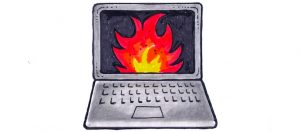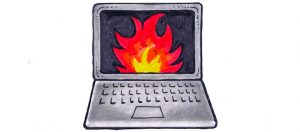
By Adam Entous & Evan Osnos
The New Yorker (1/29/18)
In early 2017, shortly after Jared Kushner moved into his new office in the West Wing of the White House, he began receiving guests. One visitor who came more than once was Cui Tiankai, the Chinese Ambassador to the United States, a veteran diplomat with a postgraduate degree from Johns Hopkins University. When, during previous Administrations, Cui had visited the White House, his hosts received him with a retinue of China specialists and note-takers. Kushner, President Trump’s thirty-seven-year-old son-in-law and one of his senior advisers, preferred smaller gatherings.
Three months earlier, Cui had been in near-despair. Like many observers, he had incorrectly predicted that Hillary Clinton would win the 2016 election; his botched forecast, he told a friend, was precisely the kind of error that dooms the careers of ambassadors in the Chinese diplomatic system. To make matters worse, Cui knew almost nobody in the incoming Administration. Donald Trump had won the election in part by singling out China for “raping” the United States.
As the Administration finished its first year, some clues to Kushner’s security troubles have come into sharper focus, giving a new perspective on his encounters with China.
In Kushner, Cui found a confident, attentive, and inexperienced counterpart. The former head of his family’s real-estate empire, which is worth more than a billion dollars, Kushner was intent on bringing a businessman’s sensibility to matters of state. He believed that fresh, confidential relationships could overcome the frustrations of traditional diplomatic bureaucracy. Henry Kissinger, who, in his role as a high-priced international consultant, maintains close relationships in the Chinese hierarchy, had introduced Kushner to Cui during the campaign, and the two met three more times during the transition. In the months after Trump was sworn in, they met more often than Kushner could recall. “Jared became Mr. China,” Michael Pillsbury, a former Pentagon aide on Trump’s transition team, said.
But Cui’s frequent encounters with Kushner made some people in the U.S. government uncomfortable. On at least one occasion, they met alone, which counterintelligence officials considered risky. “There’s nobody else there in the room to verify what was said and what wasn’t, so the Chinese can go back and claim anything,” a former senior U.S. official who was briefed on the meetings said. “I’m sorry, Jared—do you think your background is going to allow you to be able to outsmart the Chinese Ambassador?” Kushner, the official added, “is actually pretty smart. He just has limited life experiences. He was acting with naïveté.”
A different kind of threat
By now, Americans are accustomed to reports of Russia’s efforts to influence American politics, but, in the intelligence community, China’s influence operations are a source of equal concern. In recent years, the F.B.I. and the C.I.A. have dedicated increased resources to tracking efforts by the Chinese government to spy on or to enlist Western officials in pursuit of their policy goals. (The F.B.I. and the C.I.A. declined to comment on this.) “The Chinese influence operations are more long-term, broader in scope, and are generally designed to achieve a more diffuse goal than the Russians’ are,” Christopher Johnson, a former C.I.A. analyst who specializes in China, said. “To be unkind to the Russians, you’d say they are more crass.”
Kushner often excluded the government’s top China specialists from his meetings with Cui, a slight that rankled and unnerved the bureaucracy. …

